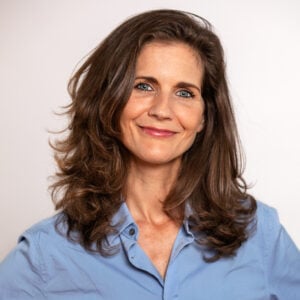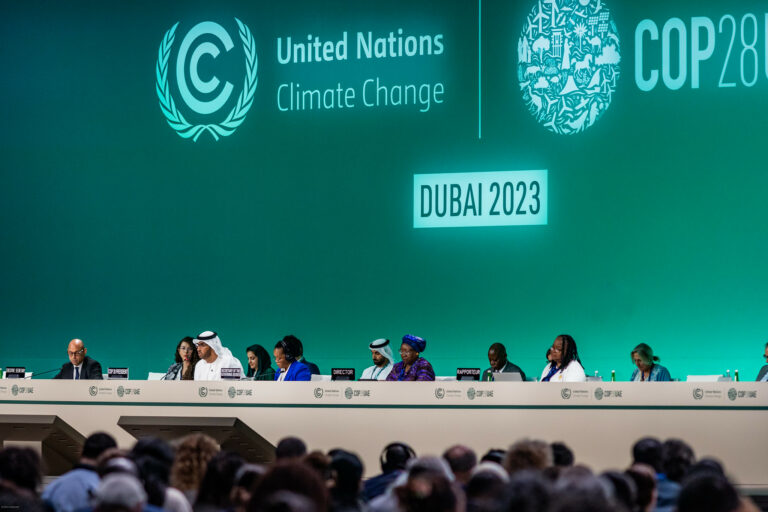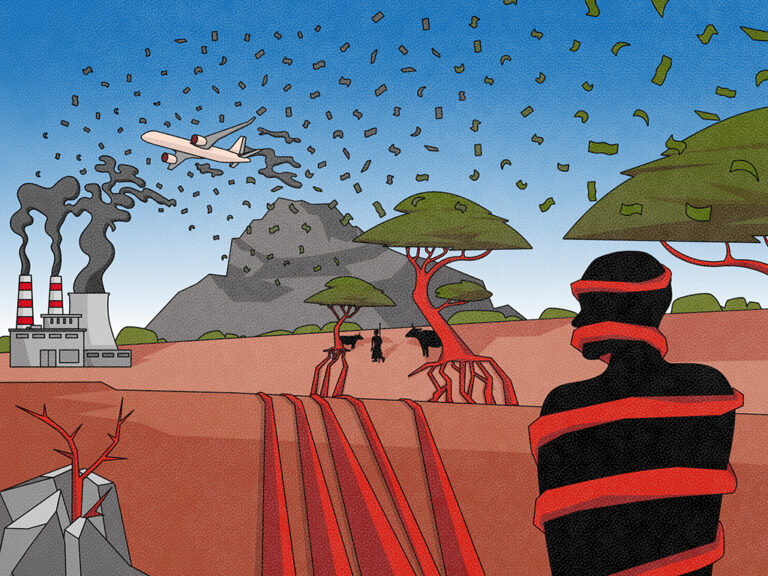
New BBC Documentary exposes the dangers of forest-based carbon credits
“You have a system where everyone benefits from not being too robust”
A new documentary film by BBC Panorama, titled Big Brands’ Green Claims Uncovered(opens in new window) delves into the market for carbon credits based on ‘avoided deforestation’ projects. Speaking to industry insiders, academic experts and affected communities in Kenya and Cambodia, the filmmakers expose how the conflict of interest at the heart of the offsetting business model not only leads to human rights risks but also creates dangerous delays in effective climate action.
The film introduces viewers to several disillusioned industry insiders, who explain why they came to question carbon offsets as a credible tool to mitigate the climate crisis. These insiders voice two key concerns: that problematic carbon accounting methods lead to exaggerated impact claims and that conflicts of interest within the carbon credit supply chain lead to weak and unreliable oversight.
Exaggerated Claims
Jonny Mulligan, a former environmental advisor to the oil industry, points to the commercial incentives for companies to exaggerate their ‘Net Zero’ impacts, and how carbon credits allow companies to co-opt the language of climate justice to drive their own business growth. According to Mulligan, “companies definitely realise [that] by appearing greener, you appeal to a certain demographic, a certain audience, and you can sell more products”.
This incentive to exaggerate mirrors the commercial pressure that offset companies face to overstate the number of trees they saved. The more credits these companies sell, the more money they make. This perverse incentive has contributed to an alarming reality where, as academic Julia Jones puts it in the film, many forest-based offsets are “essentially worthless”—an assessment shared by other academics and experts in the film.
“It’s a waste of money, and we’re also to some extent fooling ourselves… we think we’re doing something good [but] we are not…. and we are not investing in something that could actually have an impact when it comes to mitigating climate change”
Thales West, an academic focused on avoided deforestation projects in Panorama, Big Brands’ Green Claims Uncovered.
Conflicts of interest
In the absence of regulation, the carbon market depends on verification bodies such as Verra, based in the U.S., to guard the quality and integrity of carbon credits. But, as the BBC film shows, such organisations lack incentives to play this role credibly, creating problems for the people living around offsetting projects, and the decarbonisation agenda at large.
In Spain, the filmmakers meet Manuel Estrada, who worked in the industry since the early 1990s and was a technical innovations director at Verra from 2020 to 2022. One of his main tasks at Verra was to review how credits were calculated. As Estrada explains in the film, he was alarmed by how projects in the Verra system could generate more credits “just by switching methodologies”, even when their activities and results were the same. When Estrada pushed for more reliable methodologies, some project developers pushed back hard; he said, a reaction he attributed to the risk that such reforms could have halved “their potential revenues”. Since Verra earns a fee for every sold credit, more robust carbon accounting standards could have also impacted the organisation’s balance sheet. The job left Estrada frustrated with the fact that, as he put it “you have a system where everyone benefits from not being too robust”.
While those at the top of the carbon supply chain might fare well with such leniency, the Indigenous Peoples and forest-based communities living in and around such project areas sometimes pay a heavy price. In Big Brands’ Green Claims Uncovered, the filmmakers travel to Kenya and Cambodia to meet several such communities.
Human Rights Abuses
A visit to the Southern Cardamom project in Cambodia underscored the inadequacy of Verra’s oversight system. Earlier this year, researchers from Human Rights Watch found(opens in new window) this project had failed to gain consent from the local communities and even led to forced evictions. Additional problems were discovered by the BBC filmmakers when they found ongoing construction projects within the supposedly protected forest area, leading to trees being felled to make way for a new road and a hydroelectric dam. When confronted with these findings, Verra’s spokesperson said he was not aware of this problematic development.
Elsewhere in Cambodia, at the Keo Seima project in the east of the country, the filmmakers meet communities weary at the ongoing deforestation of their lands, despairing that “there’s no more hope”. While the project claims to significantly slow the rate of deforestation there, Thales West, an academic focused on avoided deforestation projects, said his research found that more than half of credits from these projects “are not real offsets”.
In Kenya, the filmmakers interview members of the Duruma community, close to the Kasigau Corridor REDD+ project – a project run by the U.S based company Wildlife Works. They tell the filmmakers how the establishment of the Kasigau project led to their forced displacement by police. “We were tilling the land peacefully”, one elderly man explains, “cultivating our crop peacefully, but unfortunately, Wildlife Works came, and we were evicted”. The testimony of an elderly woman offers a snapshot into how traumatic the events were for the people involved, explaining that when she was evicted:
“my house was full of maize. They burned it with the maize inside. Some of my chickens were inside, they were set on fire too. My life is ruined”
The filmmakers also speak to seven female employees of Wildlife Works who claim they were sexually harassed at work. SOMO and Kenya Human Rights Commission (KHRC) uncovered sexual harassment and abuse at Kasigau in 2023, and the women interviewed by the BBC provide equally harrowing accounts of their experiences. Women spoke about how they had been told that “if you want to survive here, you have to have sex with [a senior colleague]”, how “emotionally…tortured” they felt, and how they had wanted to quit but could not since they had a “family to take care of”.
The film comes at a time when Wildlife Works is still struggling to adequately respond to the investigation by KHRC and SOMO. Following our report, Wildlife Works dismissed two staff members – one for “gross misconduct, including conduct in violation of the company’s policy against sexual harassment” and another one, the Human Resource Manager, for creating “a culture of fear and intimidation that, according to interviewed personnel, prevented reporting of sexual harassment incidents”.
But the company responded only to some of the allegations made in our report, framing the abuse as, essentially, the product of two ‘bad apples’ while appearing to disregard wider allegations of abuses coming from employees and women living in the broader community.
Wildlife Works insists its operations are driven by ‘community-centered’ values. Yet, as Jutta Kill, a biologist and expert on nature-based solutions, points out in the BBC film, the attempt by Wildlife Works to reduce the problem to the actions of “two rogue individuals” elides the company’s own responsibility for what its female employees went through. “How could that level of abuse happen for a decade and the company not noticing?” Jutta asks. “That says a lot about the way the company was run”.

A broken system beyond repair
The testimonies of sexually harassed women and forcibly evicted Duruma community members, combined with problematic comments made by Wildlife Works’ CEO and captured on camera – apparently implying that local partners, like dogs, can be trained to change their behaviouri – result in a damning picture of Wildlife Works. But it would be a mistake to walk away from this film, concluding that Wildlife Works is an exceptionally careless company. Instead, it is the business model that underpins these projects and the power imbalances they introduce and entrench that we should focus on.
Verra’s weak oversight system is one of the reasons why the concerns of local forest communities – among the most isolated and marginalized in the world – rarely surface in the carbon market discourse. Still, researchers, journalists and civil society groups have, in the past couple of years, documented forced evictions(opens in new window) , exploitation(opens in new window) , deception(opens in new window) , exclusion,(opens in new window) problematic consent practices(opens in new window) , dispossession(opens in new window) , food insecurity(opens in new window) and other(opens in new window) human rights violations in projects across the Global South. The resulting mountain of evidence flies in the face of efforts by industry actors to reduce the problem of abuse to one of unfortunate exceptions and isolated incidents. It reveals that, in reality, the problem is systemic(opens in new window) . Big Brands’ Green Claims Uncovered contributes vital perspectives and voices to this body of evidence and offers a powerful warning about the carbon market’s harmful impacts.
i See BBC Panorama, Big Brands’ Green Claims Uncovered, aired on 02 May 2024, at 31 minutes. Mr. Korchinsky told the BBC that his remarks were intended as a frivolous way to illustrate a broader discussion ….and they don’t reflect his respect for local communities, national governments and other partners and that he regrets any offence that may have been caused. Wildlife Works response to the airing of the BBC film is here(opens in new window) .
Do you need more information?
-

Maria Hengeveld
Corporate researcher
Related news
-
Carbon Offsets: the ‘go-to’ industry for big business greenwashing needsPosted in category:Opinion
 Audrey GaughranPublished on:
Audrey GaughranPublished on: Audrey Gaughran
Audrey Gaughran -

-
Offsetting human rights Published on:
 Maria HengeveldPosted in category:Publication
Maria HengeveldPosted in category:Publication Maria Hengeveld
Maria Hengeveld


